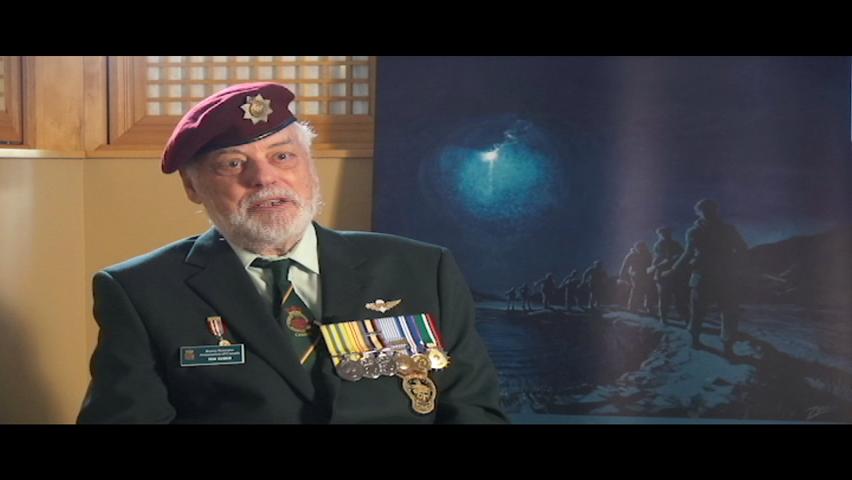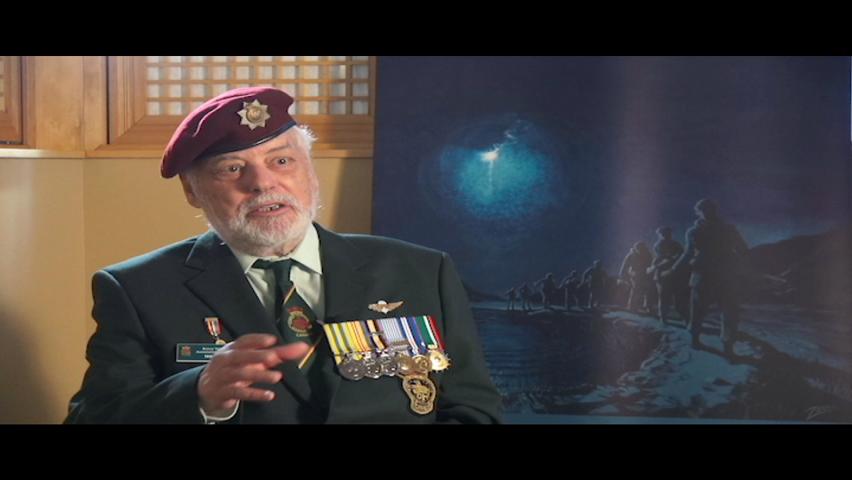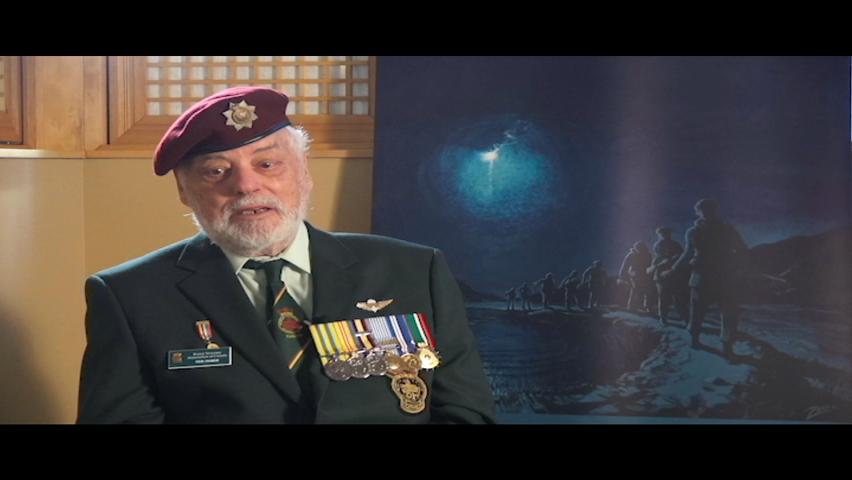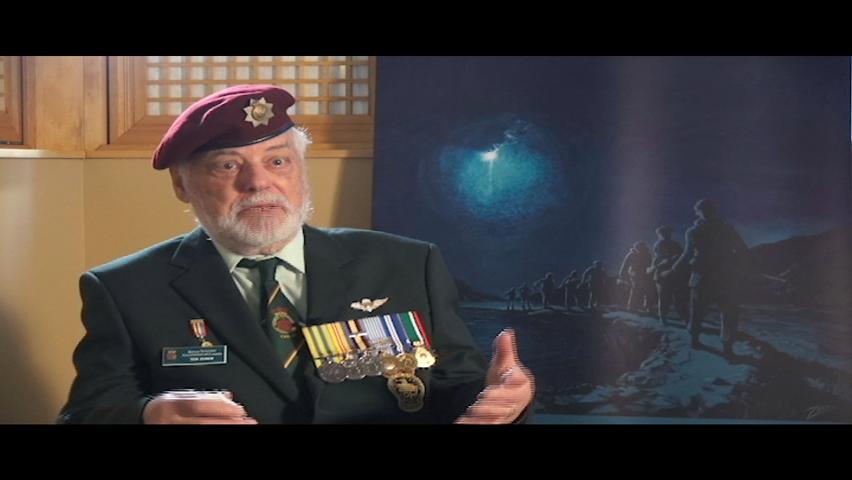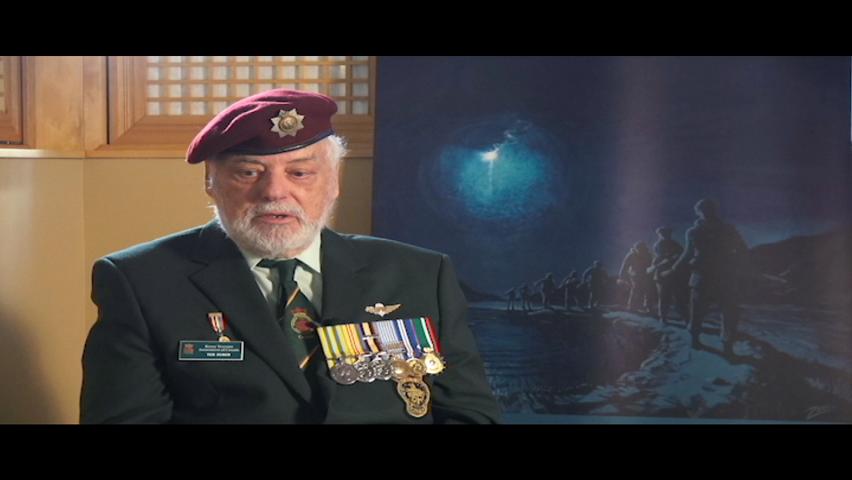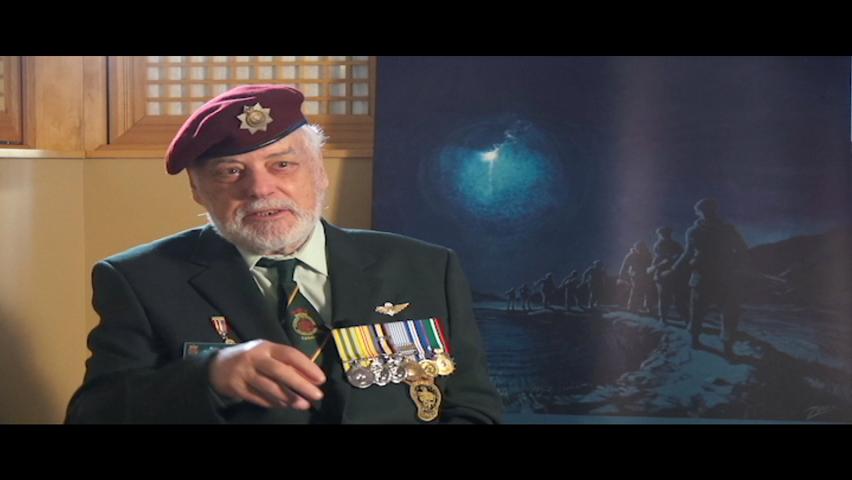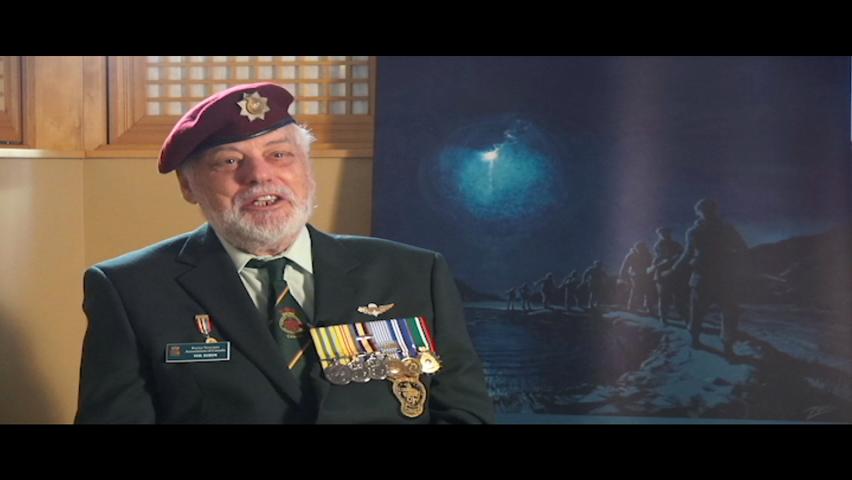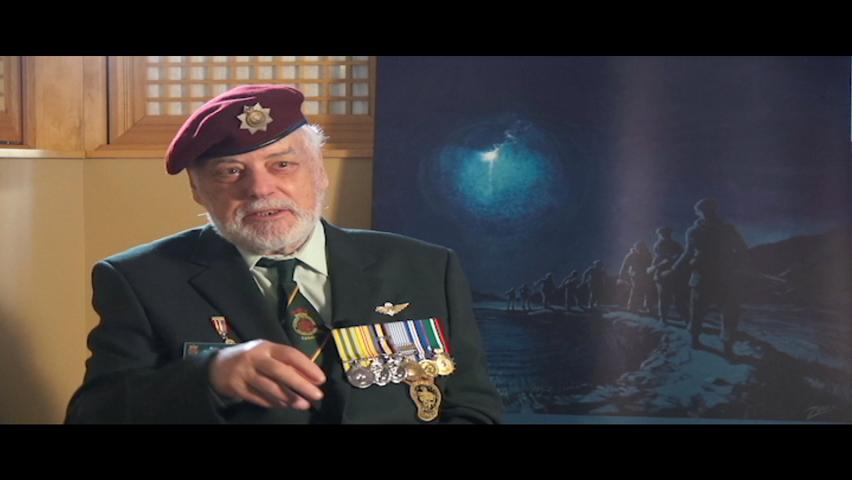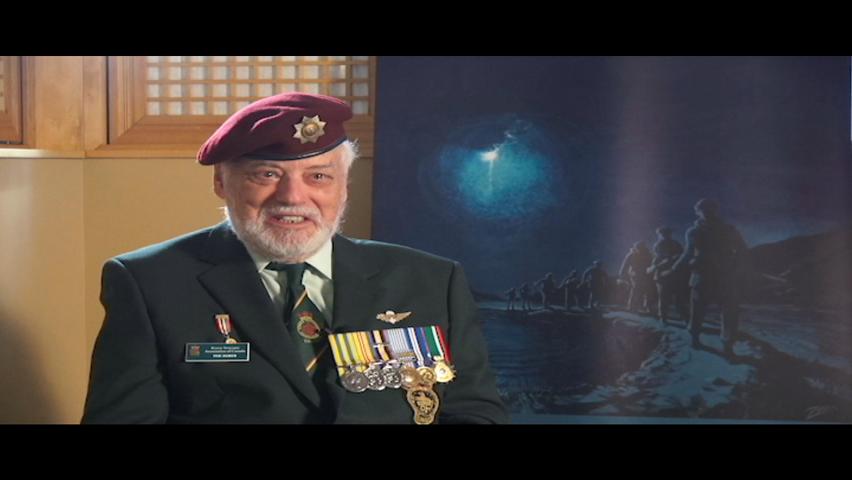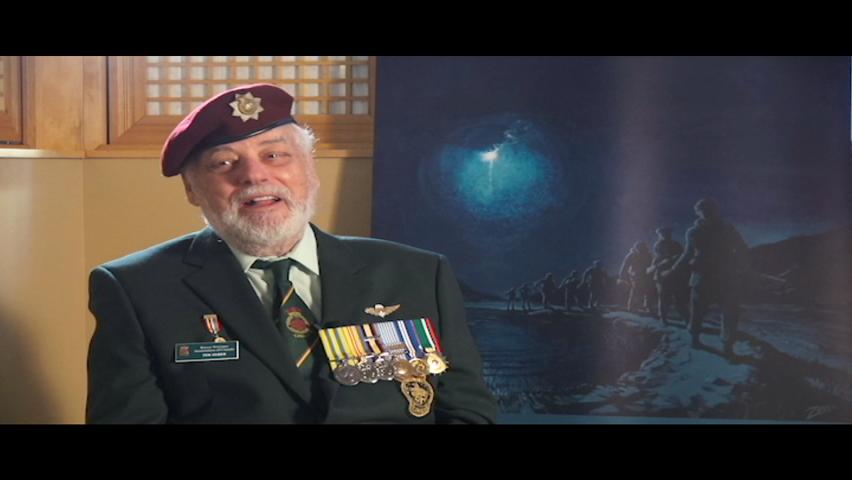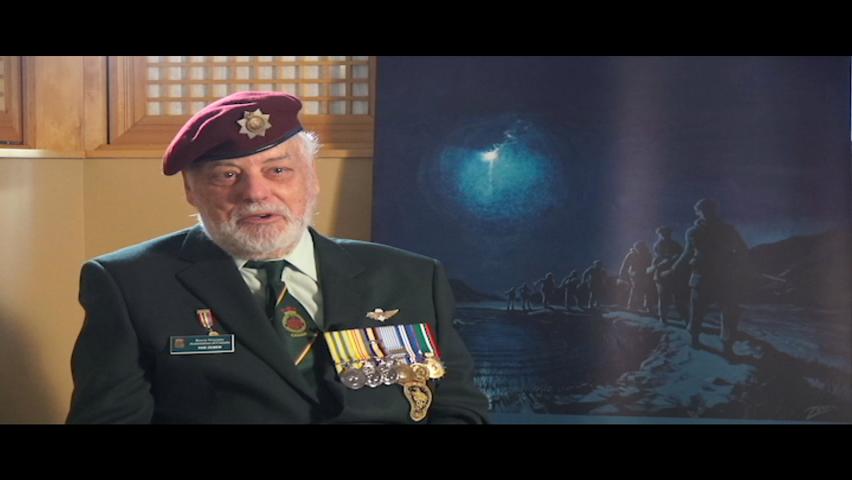We were living in tunnels. We had finally
adopted some of the good sense exercised
by the Chinese. They didn’t use bunkers
like we did. A bunker basically was a hole dug
in the side of the hill and the front wall
happened to be built up with sandbags and
then you put beams of wood, steel if you
had them but that was very rare.
And then you put sandbags and whatnot
and then you built a roof then you
put broken rocks on the top of the
roof so that if a mortar came in it would
explode, hit into the rocks rather than
go through and kill you inside.
During the August monsoon period all of
these bunkers were washed out.
Well the Chinese lived in tunnels.
Of course when our aircraft went over
and bombed them, all they could feel
was a little thump way up there.
We lived in tunnels on The Hook position.
And I did most of my work as a sniper
during the daylight but it was a
night time war but you couldn’t go out
and expose yourself in daylight,
you’d be killed. So it was night time.
This was one of the reasons why this
particular painting was chosen to
commemorate the 65th Anniversary
because if there was one thing the
Canadian soldier did in Korea, it was patrol.
Every night we had patrols out, killing patrols,
snatching patrols to keep the prisoners,
just intelligence patrols, all kinds of them.
I was sleeping in the tunnel that night and a
couple of reinforcements had been sent up,
five or six fellows in the last few days and
one of them killed themselves with priming a
hand grenade down in Charlie Company’s area.
A hand grenade, it would come in a box with
the grenades but a separate tin can with
the fuses and you’d take a base plug off,
a big bolt, take it out of the bottom,
put in the fuse and load the spring.
And the handle, people are aware it’s on a
hand grenade is attached to this spring
loaded striker. Anyway you put the base
plug back in, put the pin in and the
grenade is primed.
And when you throw the grenade you
take the pin out but hold that handle.
And when you throw it, the handle flies off,
the striker goes down and there’s a three or
four second fuse before the explosion.
So this fellow had been sent in, in my case
that night to prime a box of grenades.
So he came in and the little tunnels,
they were only about three or four feet high
and then we’d have a bit of an open pod
where maybe four or five guys could sleep.
I was in there and I was sleeping in my
sleeping bag. I would sleep at night because
I wanted to do my work during the day.
He came in and he sat down on the other
side of me about that far from me and he was
priming the grenade. In that bunker or excuse me
in that tunnel, were two South Korean labourers
wth a pick and shovel. They were exending the
tunnel. The tunnel did not have an exit which
was bad because if we got hit in there with a
flame thrower we would all die because there
was no where for oxygen to get in.
That would have been dehydrated instantly.
So these two South Korean labourer fellows were
quietly digging away. The man in charge of them
was from the Engineers and he was sitting
there under one candlelight, reading a book.
I remember it was The Perfume Garden.
That was a no-no in those days. And he was
this and this fellow Dougie Rayner,
I don't know why I remember his name,
he was allowed, he was a signaler and he
was allowed to come in to have a cigarette
because you couldn't smoke in the trench,
of course, and he was sitting
right beside me having a cigarette and
the painting I did show this
fellow coming in with grenades.
Well he sat down over here and
he's priming the grenades and he slipped.
The bloody striker went down and hit the fuse.
All he had to do, he's got three or four seconds,
all he had to do was throw the stupid grenade
down the tunnel. We purposely built the tunnels
with angles in them so the blast couldn't travel
too far. But no he left the bloody grenade there,
that far from my bum and he ran.
He got out, the grenade went off.
Tore the head off one of the South Koreans.
He was killed instantly. The other Korean died
beside me on a stretcher at the regimental aid post.
I got the shrapnel all through my leg and buttocks.
Dougie lost the back of his foot.
The engineer had his leg broken in two places.
And that's my big war story,
wounded by one of our own bloody grenades.



